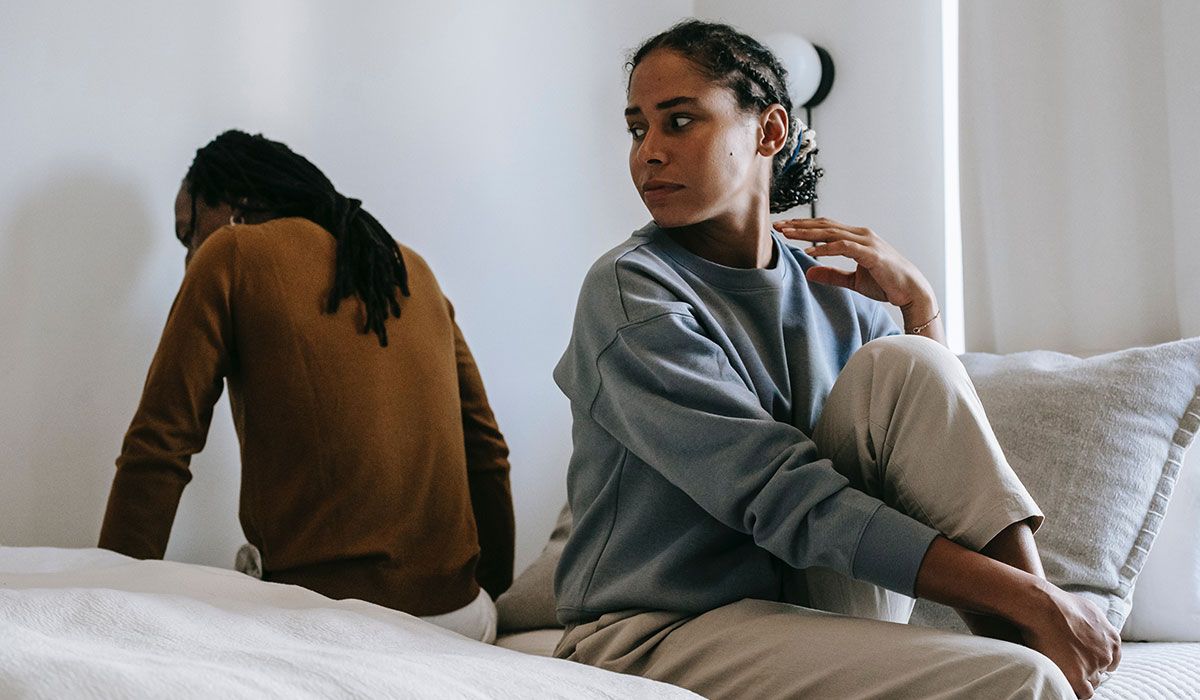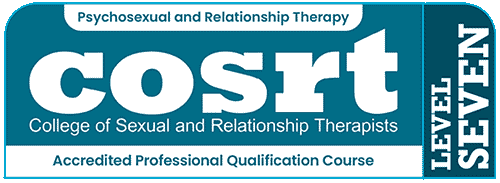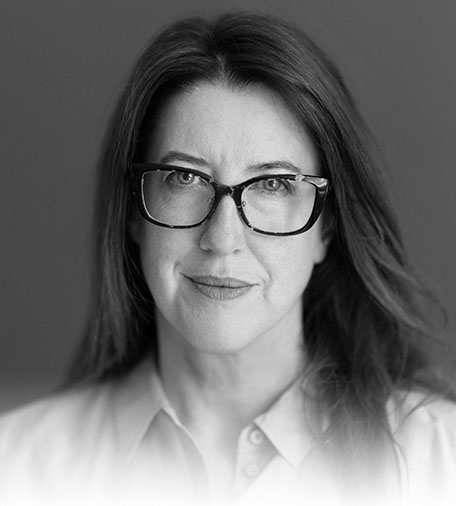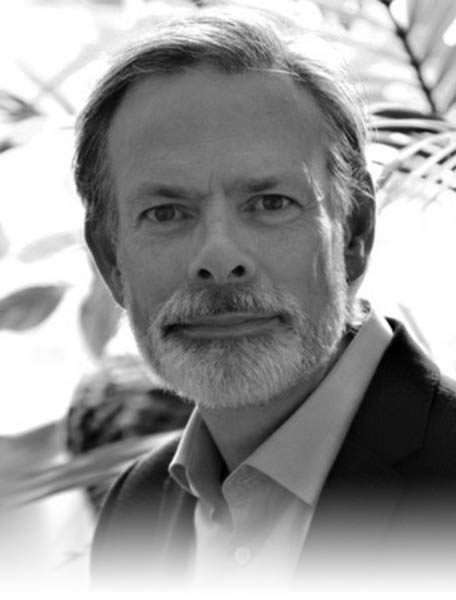Diploma in Psychosexual Therapy
About this course
This course is designed to provide skills and opportunities for clinical practice in the area of psychosexual therapy. It qualifies graduates to practice as psychosexual therapists.
Find out more below.

Key Infomation
Start date: October 2024 - Recruitment is now open. Please scroll down to find the 'How to apply' section.
Open Event: Thursday 11 April 2024, 7pm - 8pm via Zoom. Please register your interest here.
Course length: 2 years
Fees: £7,900 for two years
Venue: Central London location
Course dates: Autumn 2024 - two days per month (year one) and one day per month (year two)
See Course Dates and Teaching Times tab below for exact course dates.
Course code: T3
How to apply: Please apply using the 'Apply now' button in the section below.
Application fee: is £50 (non-refundable) and an interview fee of £100, payable if shortlisted for interview
Teaching and supervision is provided by senior staff. All our trainings and supervisions are delivered by highly experienced staff at Tavistock Relationships.
- Overview
- Content
- Who Is the course for
- Entry requirements
- Assessment
- Syllabus
- Clinical hours and case requirements
- Course dates and teaching times
- Teaching staff
-
Overview
This course is designed to provide knowledge, skills and opportunities for clinical practice in the area of psychosexual therapy. It qualifies graduates to practice as psychosexual therapists in statutory and voluntary sectors as well as in private practice.
-
2-year course leading to qualification as a Psychosexual Therapist
-
Open to experienced therapists and counsellors who have a clinical qualification in psychotherapy, counselling or counselling psychology from a nationally accredited training (eg. BACP/BPC/UKCP)
-
Weekend teaching modules
-
This course is accredited by COSRT at Level 7

-
-
Content
The Diploma offers a clinical, professional training in the theory and practice of Psychosexual Therapy.
Theory and Practice
The course includes:
-
seminars on psychosexual and relationship issues
-
opportunities to develop critical thinking by means of written assignments, reading, discussion
-
group work and role play
-
monthly case discussion/supervision group
-
monthly self-reflective group
-
support from a personal tutor throughout the course
-
overseeing student’s progress in fulfilling COSRT clinical and supervision requirements.
Clinical Work
Students are required to complete 200 hours of face-to-face clinical work. They must see a minimum of 10 cases, five of which must be with couples.
We provide some opportunities to undertake clinical work at an external placement to broaden experience.
Supervision
In accordance with COSRT guidelines, supervision must be undertaken at the supervision ratio of one hour per six hours of clinical work. Supervisors should be experienced COSRT-accredited psychosexual therapists.
Students working in private practice may charge their psychosexual training clients but must inform clients about their trainee status. Private work must be supervised by a Tavistock Relationships-approved supervisor.
Payment for private supervision is not included in course fees.
-
-
Who Is the course for
The two-year course is suitable for qualified therapists who wish to develop expertise in working with psychosexual issues and to gain a professional qualification in this field.
-
Entry requirements
Minimum Entry Requirements
Applicants will need:
-
a clinical qualification in psychotherapy, counselling or counselling psychology from a nationally recognised training for example: UKCP, BACP, BPS
-
sufficient counselling and academic competencies demonstrating an ability to meet the demands of the course
-
two hundred hours of supervised face-to-face clinical work with individuals or couples
-
appropriate personal qualities (a high degree of reflexivity, capacity to make and maintain close personal relationships, ability to reflect on personal experience).
N.B. Successful applicants are required to complete one hundred hours of personal individual therapy either before or during the course. A minimum of 20 hours of personal therapy must be completed and evidenced during training and started during the first module. At least twenty of the one hundred hours must be with a psychodynamic therapist.
Entry with Advanced Standing
Applicants to the programme may apply for admission with advanced standing where they can produce evidence of prior learning that demonstrates that the learning outcomes of the identified components within the programme have been fulfilled.
Exceptional Entry:
Applicants with other qualifications, or assessed prior (experiential) learning, may be considered for exceptional entry on their merits if the selection panel and the Assessment Board can be satisfied of their clinical and academic competence.
-
Clinical Competence: evidence of a supervised, clinical caseload seeing adults (couple and/or individual) in talking therapy, with at least a total of 200 hours.
-
Academic Competence: studied on a relevant postgraduate degree or diploma, or masters level specialist training.
We would require a completed application form, plus a portfolio demonstrating relevant prior learning and clinical experience. Referees stated on the application form must be able to confirm the applicant’s clinical and academic attainment.
-
-
Assessment
Assessment via role plays, self-reflective reports, clinical discussion groups, the psychosexual assessment of set case studies, group presentations, a resource folder, an end of course examination and a final 6,000-word essay plus ongoing assessment by supervisors, seminar leaders and tutors; and a minimum of 200 hours of clinical practice under supervision. (See below.)
Academic Assessment Requirements
Assessment
Theory, practice and research of psychosexual therapy
- confirmation of attendance at seminars
(80% minimum) - seminar presentations
- three assessed role plays
- assessed case studies
- a written examination of clinical competencies
- a 6,000-word qualifying paper
- six written clinical case summaries
- a resource portfolio
- tutor and assessor's reports.
Clinical Requirements
(may be modified according to professional body or Tavistock Relationships requirements)
Assessment
- Personal Psychotherapy - 100 hours minimum
- Training journal
- Confirmation of attendance from former or present therapist
- Tutor’s confirmation
- Supervision at approved ratio (one hour for every six hours clinical work) from
the end of Module One of the course until qualification.
- Case record notes
- Supervisor reports and confirmation of readiness to qualify
Clinical practice: -
- 200 hours psychosexual therapy
- Minimum 10 cases, of which at least five must be with couples
- Supervisor reports
- Clinical hours log and six written clinical case summaries
Tutorials: -
- 3 hours in Year One
- 4 hours in Year Two
- Tutor’s reports
- confirmation of attendance at seminars
-
Syllabus
The structure of the course is modular but issues around assessment, treatment planning, diversity and relationships will be threaded through all modules on the course. All set reading material, apart from chapters in prescribed text books, will be supplied but students are expected to read and research widely around the topics.
Students will be expected to keep a self-reflective journal throughout the course and to compile a folder of resource material.
Module 1: Thinking About and Working with Relationships
-
Why relationship focus?
-
Psychodynamic aspects of the couple relationship - (the Tavistock Relationships method)
-
Couple attachment theories
-
Genogram
-
Working with individual clients on relationships issues
-
Key clinical skills in working with the couple
-
Working with violence, aggression and vulnerability
-
Protection issues relating to children and vulnerable adults
Module 2: Psychosexual Assessment and Treatment
-
Introduction to psychosexual therapy
-
Anatomy and physiology of sexual response.
-
History taking
-
Psychosexual dysfunctions
-
Desire disorders
-
Psychosexual assessment
-
Treatment planning
-
Behavioural and education work
-
Mindfulness
-
Setting and working with self focus exercises
-
Setting and working with sensate focus
Module 3: Working with Diversity and with Different Clinical Groups
-
Working with sexual minorities, LGBTQ+
-
Working with the transgender and non-binary community
-
Working with different cultural and religious groups
-
Sexual compulsivity and chemsex
-
Working with survivors of childhood sexual abuse and trauma
-
Working psychosexually with individuals
-
Researching psychosexual areas including: polyamory, BDSM and A-sexuality
Module 4: Sex Through the Life Span
-
Sexual development
-
Contraception, abortion, infertility, childbirth, parenthood
-
Sex after menopause and in later life
-
Sex after illness
-
Working with disability
-
STIs, HIV
-
Working with mental health issues
-
Pharmacology and its impact on sexual and emotional function
Module 5: Ethics and Revision of Competencies
-
Erotic transference
-
Ethics and ethical considerations
-
Practice management
-
Review of psychodynamic couple work
-
Review of psychosexual assessment, formulation, treatment planning
Module 6: Good Enough Sex
-
Qualifying exam, role play and final essay preparation
-
Working with sex toys and sex aids
-
Mourning and acceptance
-
Endings in relationships and in therapy
-
-
Clinical hours and case requirements
In order to complete the Diploma and conform to COSRT requirements, trainees must complete 200 hours of face-to-face psychosexual therapy with clients. Trainees must work with a minimum of ten psychosexual cases of which at least five should be couples. Trainees may achieve these hours on placement, in their organisation, in their private practice or in a combination of these.
We encourage those in private practice to seek a placement in an NHS psychosexual clinic, for at least some of the required hours, because of the experience and support this gives.
Trainees may charge their psychosexual training clients but must inform clients that they are in training. Private work must be supervised by a Tavistock Relationships-approved psychosexual supervisor.
NB In accordance with COSRT guidelines, trainees with less than 200 hours’ prior experience of face-to-face clinical work are not permitted to see training clients in their private practice. They must seek a suitable placement.
-
Course dates and teaching times
Year 2024-2026
Fridays are 10:30am-4:30pm
Saturdays are 10:00am-5:00pm
Module One
- Friday 11th October 2024
- Saturday 12th October 2024
- Friday 8th November 2024
- Saturday 9th November 2024
- Friday 13th December 2024
- Saturday 14th December 2024
Module Two
- Friday 17th January 2025
- Saturday 18th January 2025
- Friday 14th February 2025
- Saturday 15th February 2025
- Friday 14th March 2025
- Saturday 15th March 2025
- Friday 4th April 2025
- Saturday 5th April 2025
Module Three
- Friday 2nd May 2025
- Saturday 3rd May 2025
- Friday 6th June 2025
- Saturday 7th June 2025
- Friday 11th July 2025
- Saturday 12th July 2025
Module Four
- Saturday 13th September 2025
- Saturday 11th October 2025
- Saturday 8th November 2025
- Saturday 13th December 2025
Module Five
- Saturday 24th January 2026
- Saturday 21st February 2026
- Saturday 21st March 2026
- Saturday 18th April 2026
Module Six
- Saturday 16th May 2026
- Saturday 13th June 2026
Diploma Dates - 2023 - 2025
Fridays are 10:30am-4:30pm
Saturdays are 10:00am-5:00pm
Module 1- Friday 13 October 2023
- Saturday 14 October 2023
- Friday 10 November 2023
- Saturday 11 November 2023
- Friday 8 December 2023
- Saturday 9 December 2023
Module 2
- Friday 12 January 2024
- Saturday 13 January 2024
- Friday 9 February 2024
- Saturday 10 February 2024
- Friday 8 March 2024
- Saturday 9 March 2024
- Friday 19 April 2024
- Saturday 20 April 2024
Module 3
- Friday 17 May 2024
- Saturday 18 May 2024
- Friday 14 June 2024
- Saturday 15 June 2024
- Friday 12 July 2024
- Saturday 13 July 2024
Module 4
- Saturday 14 September 2024
- Saturday 12 October 2024
- Saturday 9 November 2024
- Saturday 14 December 2024
Module 5
- Saturday 18 January 2025
- Saturday 15 February 2025
- Saturday 15 March 2025
- Saturday 5 April 2025
Module 6
- Saturday 3 May 2025
- Saturday 7 June 2025
-
Teaching staff
Teaching Team
- Bridget Wilkins - Psychodynamic and Psychosexual Couples Therapist. - Diploma in Psychosexual Therapy, PGDip. Couple and Individual Psychodynamic Counselling and Psychotherapy. PGDip. Psychosexual Therapy, MBACP, MCORST.
- Andrew Davidson - MSc in Psychosexual and Relationship Therapy, TR, Relationships, University of East London; MA in Relationship Therapy, Relate Institute, University of Hull. COSRT, MBACP.
Research/teaching interests: Male sexual dysfunctions, hypoactive sexual desire, couple therapy. - Marian O’Connor - a UKCP and COSRT-accredited psychosexual and relationship therapist with nearly thirty years’ clinical experience working with individuals and couples. Formerly the Programme Leader of the MSc in Psychosexual and Relationship Therapy at Tavistock Relationships, she has presented on psychosexual issues in conferences both home and abroad, and frequently writes for or advises the media on psychosexual and relationship issues, most recently (2018) in Huffington Post, Telegraph and Mental Health Today. She is co-author of the chapter ‘Psychodynamic Aspects of Psychosexual Therapy’ for the European–wide syllabus of clinical sexology published by the European Society of Sexual Medicine and contributed a chapter 'Let's talk about Sex' to Tavistock Relationships new publication, 'Engaging Couples: New Directions in Therapeutic Work with Families' (Routledge, 2018).
- Linsey Blair - MSc (Psychology), PGDip Psychodynamic Cpl Cllg, Dip Psychosexual Th, MBACP Accred, COSRT Accred, UKCP Reg, BSCPC (FM).
Research/teaching interests: gender issues, female sexual dysfunction. - Dr Karl Hollows - Dip Psychosexual Th, PgDip MedEd, DipGUM (Diploma in Genitourinary Medicine), COSRT Accred, FECSM (Fellowship of the European Committee of Sexual Medicine), MFSRH (Membership of the Faculty of Sexual and Reproductive Healthcare), BASHH (Secretary).
Specialist in: Sexual Health Medicine, Midlands Partnership NHS Foundation Trust. - Judith Jamieson - MSc Psychosexual and Relationship Therapy, PGDip Couple and Individual Psychodynamic Counselling and Psychotherapy, BSCPC (FM), MBACP General Member, COSRT Accred, UKCP Registered. Clinical Lead at Tavistock Relationships.
Special interests: risk assessment, diversity. - Remziye Kunelaki - Psychosexual Therapist and Supervisor, COSRT Accred, BPS, BASHH, Committee Member BSSM, European Certified Psycho-Sexologist (EFS and ESSM), The EFS/ESSM Psycho-Sexology Accreditation Committee Member (EPSA).
Research/teaching interests: short-term focussed work, STIs. Lead Psychosexual Therapist, Chelsea and Westminster Hospital NHS Foundation Trust. - Poppy Mellor - MSc, PGDipDip Psychodynamic Cpl Couns, COSRT (GM).
Research/teaching interests: couple psychodynamic therapy, psychosexual therapy, pornography and internet addiction. - Dorota Mucha - MA Social Psychology, MSc Psychosexual Therapy, PGDip Psychodynamic Couple Counsellor, MBACP, COSRT.
Special interests: ChemSex, same sex couples, polyamory. Lead Psychosexual Therapist in NHS CUH (short term psychosexual interventions). - Inge Fisher - MSc Psychosexual and Relationship Therapy, PGDip Couple and Individual Psychodynamic Counselling and Psychotherapy, MSc in Career Management and Counselling MBACP, COSRT.
Research/teaching interests: relationship and psychosexual issues. - Olivia Luna - MSc Psychosexual and Relationship Therapy, PGDip Couple and Individual Psychodynamic Counselling and Psychotherapy, PGDip Psychology, BA Sociology MBACP, COSRT Accredited, UKCP Registered.
- Silva Neves - COSRT accredited and UKCP registered psychotherapist, specialising in sexology, relationships and trauma. He is a course director for CICS (Contemporary Institute of Clinical Sexology), an international speaker and an editorial board member of the journal Sex and Relationship Therapy.
- Pauline Orchard - Couple and Individual Psychotherapist, MA Couple and Individual Psychodynamic Counselling and Psychotherapy (UEL/TR), PGDip, BACP. Visiting Clinician at Tavistock Relationships (TR), Accrediting Supervisor for Couple Therapy for Depression IAPT.
- Claire Watt-Smyrk - MSc Psychosexual and Relationship Therapy, PGDip Couple and Individual Psychodynamic Counselling and Psychotherapy, PGDip Law, BA Hons Sociology, MBACP, COSRT, BSSM.
Research interests: Sexual desire and Life- stage issues. - Janet Newman - Diploma in Psychosexual Therapy, PGDip. Couple and Individual Psychodynamic Counselling and Psychotherapy. PGDip. Psychosexual Therapy, MBACP, CORST.
External Examiner
Jane Read, Psychosexual Therapist and Supervisor, COSRT Accred, psychotherapist, counsellor, trainer in women’s reproductive health issues, infertility, sexuality and relationships since 1979.
Over 10 years’ teaching/tutoring/supervisory experience.
How to apply for this course
How to apply
There is an application fee of £50 (non refundable) and an interview fee of £100, payable if shortlisted for interview.
Final deadline for the course commencing in October 2024 is 3 June 2024
When filling in the online form, please make sure to click the 'Save my progress and resume later' box at the top of the page to avoid losing application content.
Wheelchair access
Enquire about this course
Note: Please make sure to select the correct course from the 'Range of Courses' dropdown menu in the form below.
Course leaders

Bridget Wilkins (Psychodynamic and Psychosexual Couples Therapist, Accred. COSRT, MBACP) is a couple and individual psychodynamic and psychosexual therapist and faculty staff member at Tavistock Relationships. She has responsibility for programming the centre’s Psychosexual Studies Certificate and for the Psychosexual Diploma. A former BBC producer, she retrained at Tavistock Relationships, completing their diploma in Couple and Individual Psychodynamic Psychotherapy before training as a Psychosexual Therapist. She has a particular interest in the impact of emotional experience on both the body and the mind.

Andrew Davidson is a psychosexual and relationship psychotherapist and has worked with couples for over 20 years. He is registered with the College of Sexual and Relationship Therapists (COSRT) and the British Association of Counselling and Psychotherapy (BACP). Andrew is jointly responsible for the Diploma in Psychosexual Therapy and teaches on the Psychosexual Certificate in Psychosexual Studies. Andrew originally completed his clinical training at Relate. He also worked for Relate National for several years, where he managed and coordinated the clinical training.